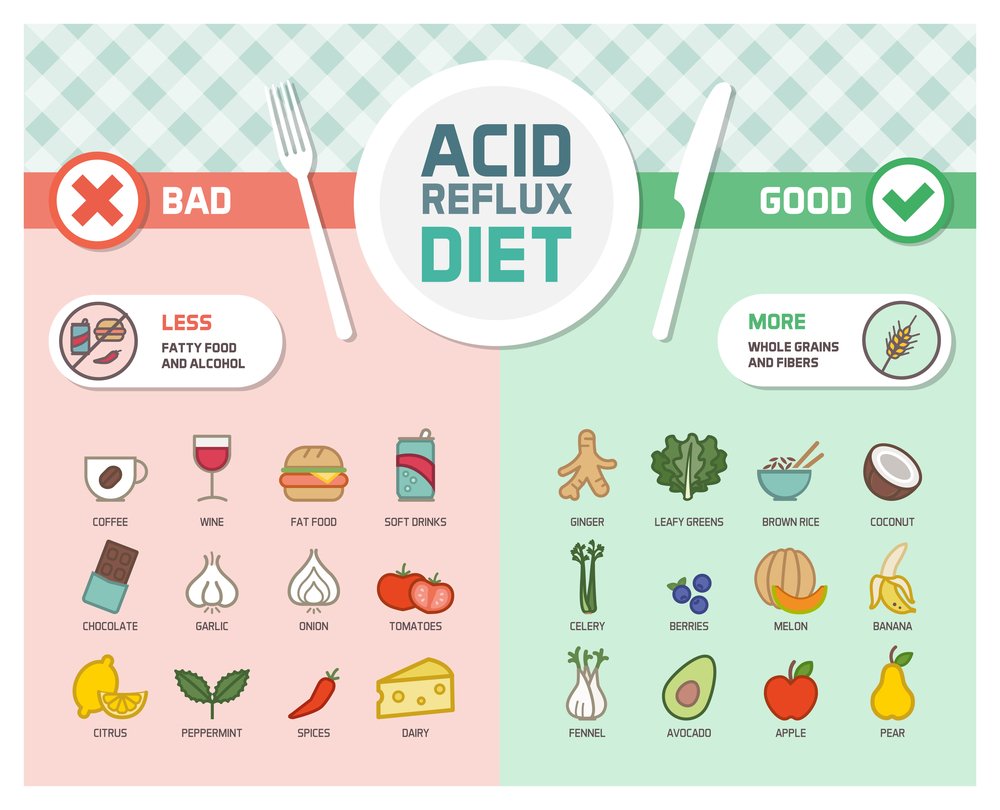What's On This Page?
ToggleToday’s article is based on a question I received from a reader through my syndicated newspaper column. From T.B. in Ft. Lauderdale, Florida:
In a previous column on apple cider vinegar (ACV), you stated that ‘heartburn and reflux can sometimes be related to insufficient levels of stomach acid, not high levels like many of you who take acid blockers assume.’ Really Suzy? I’ve been on Omeprazole for years for heartburn. My doctor says you’re nuts and got angry when I questioned him.
Acid Reflux and Low Stomach Acid – A Misunderstood Condition
It’s not widely known, but heartburn and gastroesophageal reflux disease (GERD) can indeed be linked to insufficient levels of stomach acid, contrary to what is often assumed. Many doctors quickly prescribe acid-blocking medications like Omeprazole without testing for underlying problems like low stomach acid, known medically as hypochlorhydria. See below for a picture with some dietary considerations.
The Role of Gastrin and Acid Blockers
A simple blood test that evaluates gastrin levels can help diagnose low stomach acid, but unfortunately, this test is seldom performed. Gastrin is a hormone that stimulates stomach acid production, and elevated levels can suggest impaired acid secretion if the stomach is not responding as it should. The widespread use of acid blockers can lead to decreased stomach acid over time, exacerbating the problem rather than solving it at its root.

GERD Medications and Their Function
It’s important to note that while acid-blocking drugs are effective in reducing stomach acid, they do not address the functionality of the lower esophageal sphincter (LES).
This sphincter acts as a gate, opening to allow food to pass into the stomach and closing to prevent acid from refluxing back into the esophagus. When stomach acid is insufficient, the LES may dysfunction, leading to symptoms of acid reflux.
Health Implications of Low Stomach Acid
Low stomach acid not only leads to heartburn but may also be associated with several other health issues including:
- Digestive problems like irritable bowel syndrome (IBS)
- Increased risk of infections due to impaired nutrient absorption
- Possible links to autoimmune conditions due to altered gut flora
Diet and Reflux
Diet plays a significant role in managing heartburn and reflux. Certain foods can trigger these symptoms, and it’s crucial to identify and avoid them. However, promoting a healthier eating culture is equally important as relying on medications. Our focus should be on educating the public about healthy eating rather than providing quick pharmaceutical fixes.
Stomach acid plays a crucial role in digestion and maintaining the proper function of the LES. The acidic environment it creates helps keep the LES closed, preventing reflux. Apple cider vinegar has been touted for its potential to temporarily supplement stomach acid, but it is not a long-term solution and can be harsh on the esophagus if used excessively.

Conditions of Insufficient acid (whether it is drug-induced or not)
Hashimoto’s thyroiditis
Osteoporosis
Elevated homocysteine
Rosacea and acne
Rheumatoid arthritis
Eczema and psoriasis
Yeast infections
Adrenal exhaustion
Vitiligo
Why does acid help?
Many reasons, and one of them is that it keeps the tiny trap door shut between your stomach and esophagus. This sphincter is pH sensitive and in a healthy person, it stays shut because of the natural stomach acid. With acid deficiency, the stomach pH increases and this may cause the trap door to swing open, causing that familiar burn. Many people swear by the vinegar trick because it provides various acids including “acetic” acid, but gulping ACV forever is not my preference because it may be too caustic.
Alternatives and Supplements
For those who may benefit from increasing stomach acid, supplements such as betaine hydrochloride with pepsin are available. These should be taken as per a knowledgeable healthcare provider’s advice, especially considering potential interactions with other medications.
Natural remedies like ginger, cayenne pepper, and deglycyrrhizinated licorice (DGL) may also support digestive health and should be considered alongside changes in diet and lifestyle.
Summary
In the age of quick fixes, it’s crucial to understand the underlying causes of our symptoms. If you’re struggling with persistent heartburn or reflux and haven’t found relief from conventional treatments, consider discussing stomach acid testing with your healthcare provider. It might just change your approach to what seems like an endless battle with reflux.

Suzy Cohen, has been a licensed pharmacist for over 30 years and believes the best approach to chronic illness is a combination of natural medicine and conventional. She founded her own dietary supplement company specializing in custom-formulas, some of which have patents. With a special focus on functional medicine, thyroid health and drug nutrient depletion, Suzy is the author of several related books including Thyroid Healthy, Drug Muggers, Diabetes Without Drugs, and a nationally syndicated column.
